King Leonidas of Sparta
King Leonidas of Sparta remains a beacon of valor and sacrifice. Steering an elite force of 300 Spartans, he confronted the vast Persian Empire at Thermopylae. Defying overwhelming odds, his unyielding spirit turned this narrow pass into a legendary battleground. But who was the man behind the legend? Delve into the life of Leonidas, where bravery meets strategy, and where every decision echoed through history.
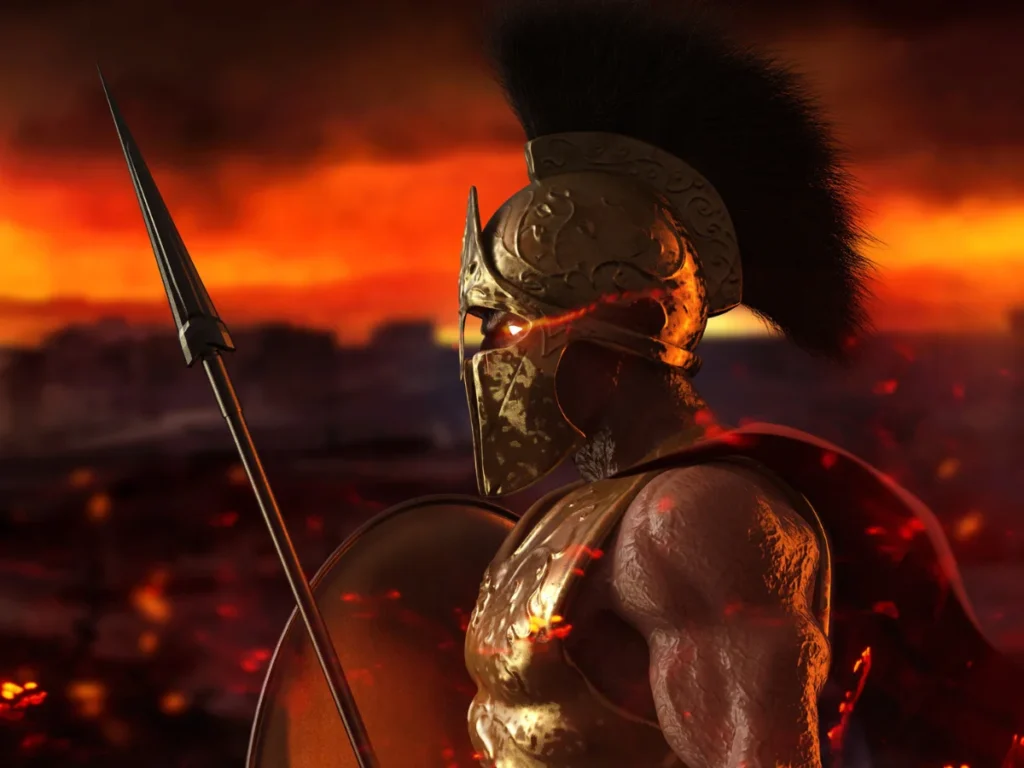
Sparta the military city state of Greece
Sparta, nestled in the rugged terrain of the Peloponnese, stands as a symbol of military prowess and discipline in ancient Greece. Its history and culture were markedly different from other city-states, particularly its main rival, Athens.
Initially, what set Sparta apart was its unique social structure. The Spartiates, or full Spartan citizens, devoted their lives to military service. From a tender age of seven, Spartan boys entered the agoge, an intense training program. Throughout this regimen, they underwent rigorous physical training, learned survival skills, and imbibed the values of loyalty and discipline. By the end of their training, these youths emerged as elite warriors, ready to defend Sparta against any threat.
Furthermore, Sparta’s militaristic society was not just limited to men. Spartan women, unlike their counterparts in other Greek city-states, enjoyed relatively more freedoms. They engaged in physical exercises, managed estates, and even participated in public discourse. Such practices aimed at ensuring they bore strong children and could manage the household when their husbands were away at war.
Moreover, Sparta’s dual kingship system was another intriguing aspect. Two kings ruled simultaneously, often from different dynasties. This system, while occasionally leading to conflicts, also provided checks and balances, ensuring no single ruler gained excessive power.
Consequently, as we reflect on Sparta’s legacy, it’s clear that its emphasis on military might and societal discipline made it a dominant force in ancient Greece. However, the very factors that made Sparta formidable – its strict adherence to tradition and resistance to change – also contributed to its eventual decline. Yet, the tales of its valor, especially the heroics of Leonidas and his Spartans, continue to inspire and captivate us, etching Sparta’s place firmly in the annals of history.
King Leonidas of Sparta: Childhood of king Leonidas
Leonidas, one of Sparta’s most celebrated kings, experienced a childhood and education deeply rooted in the unique Spartan way of life. Born into the Agiad dynasty around the mid-6th century BCE, his early years laid the groundwork for the legendary leader he would become.
Initially, like all Spartan male children, Leonidas faced a critical evaluation at birth. Elders inspected newborns for physical defects, ensuring that only the fittest survived and became a part of the Spartan society. Fortunately, young Leonidas passed this test, marking the beginning of his journey as a Spartiate.
The agoge
Upon reaching the age of seven, Leonidas entered the agoge, the rigorous educational system designed to mold Spartan boys into warriors. Here, he experienced a structured regimen that was far more than just military training. Throughout this program, he underwent intense physical exercises, learning not only to wield weapons but also to endure hardships. The agoge tested the limits of endurance, resilience, and adaptability, ensuring that Spartan warriors could face any challenge on the battlefield.
Simultaneously, the agoge also emphasized mental fortitude. Leonidas, along with his peers, learned the values of discipline, loyalty, and unity. They engaged in group activities, fostering a strong sense of camaraderie. Moreover, these young Spartans learned to communicate effectively, ensuring that they operated seamlessly in battle. Stealth and cunning were as much a part of their training as physical strength.
Additionally, Spartan education wasn’t just about warfare. Leonidas would have been exposed to Spartan songs, dances, and traditions, which played crucial roles in reinforcing societal values and unity. Through these cultural practices, he internalized the pride, honor, and duty expected of a Spartan warrior and leader.
As he grew, Leonidas also likely participated in the various festivals and competitions held in Sparta. These events, such as the Gymnopaedia, celebrated physical prowess, musical talent, and more. Competing in these would have further honed his skills and fostered a competitive spirit.
In conclusion, by the time Leonidas completed his education in the agoge, he had transformed into a formidable warrior, equipped not just with martial skills, but also with the mental and emotional strength that would define his leadership during the Persian Wars. His childhood and education encapsulated the essence of Sparta, preparing him for the challenges and triumphs that lay ahead.
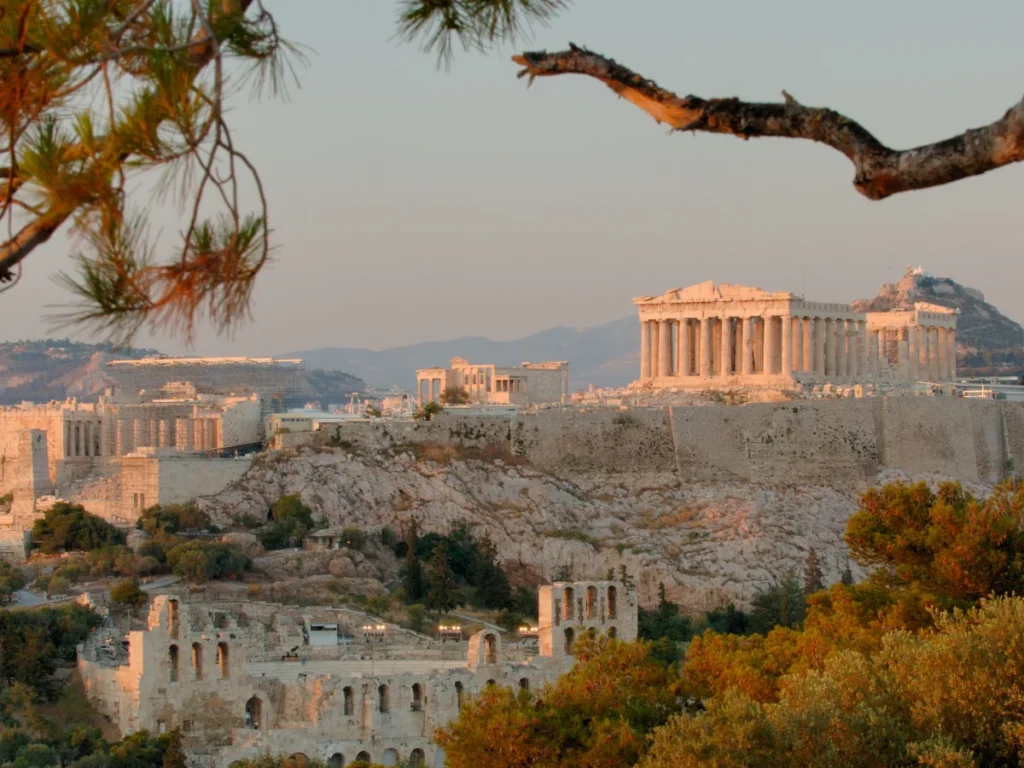
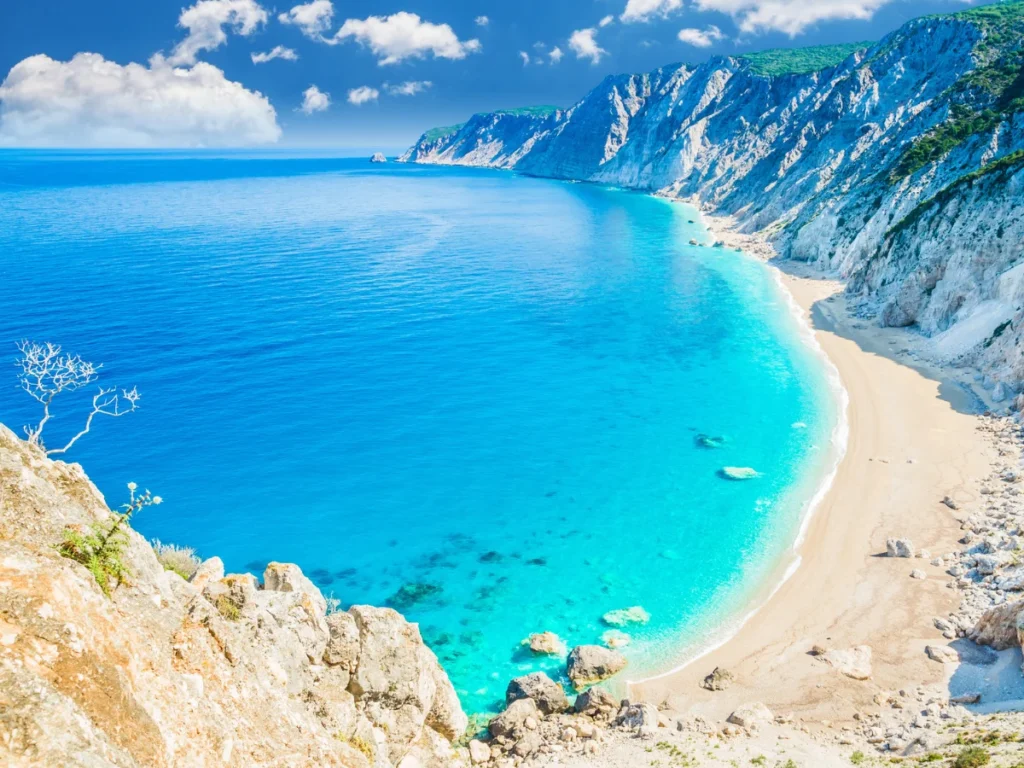
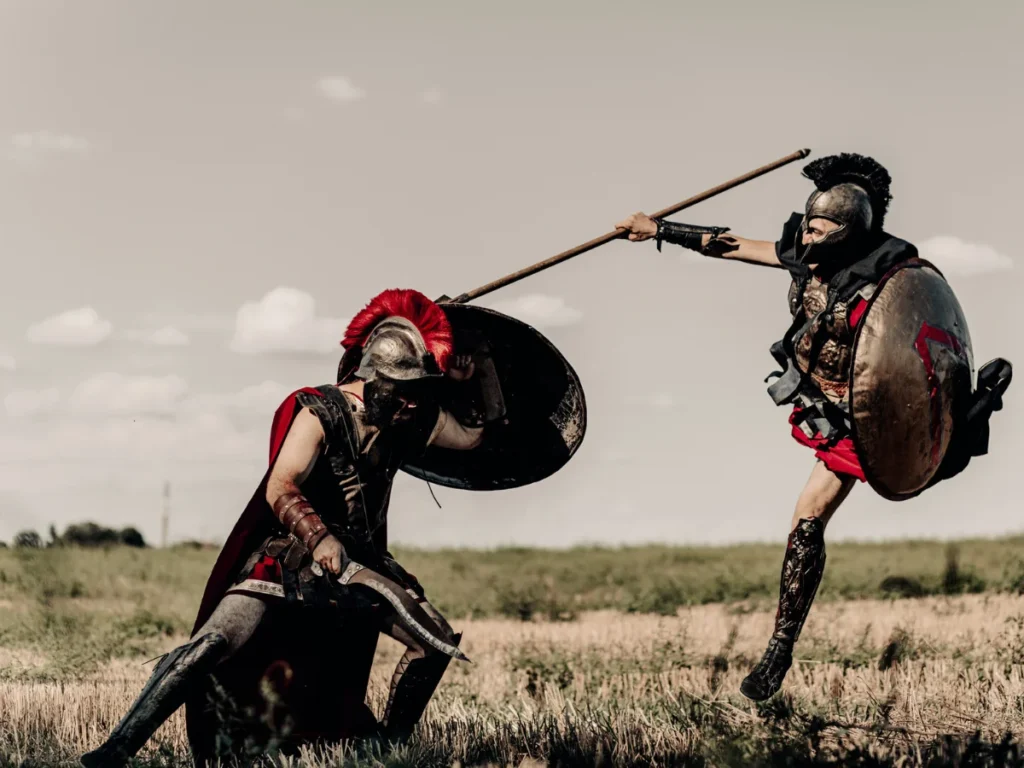
King Leonidas of Sparta: Becoming king
Leonidas’ ascent to the throne of Sparta was neither straightforward nor expected, but a series of unexpected events and familial ties placed him in this significant position.
Initially, Leonidas was not the direct heir to the throne. Born into the Agiad dynasty, he was the third son of King Anaxandridas II. Because of this, his chances of becoming king seemed relatively slim, as the path to the throne was primarily reserved for his elder brothers.
However, fate had its own plans. Cleomenes I, Leonidas’ older brother and Sparta’s reigning king, did not leave behind a male heir upon his sudden and mysterious death. Moreover, Leonidas’ other elder brother, Dorieus, had previously perished in a campaign in Sicily. Thus, with the absence of immediate heirs from Cleomenes and the demise of Dorieus, the path became clearer for Leonidas.
Upon Cleomenes’ death, it was Leonidas, known for his wisdom and experience as a military leader, who emerged as the most suitable candidate. Not only did he possess the qualities of a leader, but he also held the lineage, being a direct descendant of Heracles according to Spartan lore. Consequently, the combination of these factors propelled him to the throne.
Once Leonidas took the reins, he faced a Sparta that was in the midst of significant political and military challenges, particularly the looming threat of the Persian Empire. Furthermore, his leadership qualities would soon be put to the test, as the events leading up to the Greco-Persian wars unfolded. Undoubtedly, his upbringing, military training, and the values instilled in him through the agoge prepared him for the trials ahead.
In conclusion, while Leonidas’ path to kingship was shaped by a combination of fate, lineage, and the unfortunate demise of his siblings, it was his character and training that truly defined his reign. Throughout his rule, he exemplified the virtues of a Spartan king, ultimately leaving behind a legacy that resonates through history.
The famous war with the Persians
The conflict between Leonidas’ Spartans and the mighty Persian Empire stands as one of history’s most iconic battles. Often overshadowed is Athens’ crucial role in this confrontation, a testament to Greek unity in the face of overwhelming odds.
Initially, the Persian King Xerxes sought to expand his vast empire by annexing Greece. His motive stemmed from a desire to avenge the defeat of his predecessor, Darius I, at Marathon. To this end, he amassed a gargantuan army, a force believed to be unstoppable. Greeks, recognizing the impending threat, convened to strategize their defense.
Importantly, Athens and Sparta, traditionally rivals, realized the necessity of a united front. Themistocles, an astute Athenian statesman, proposed a naval strategy. He believed Athens’ strong fleet could outmaneuver and neutralize the Persian navy. Meanwhile, Leonidas, with his elite force of 300 Spartans and other Greek allies, aimed to block the narrow coastal pass of Thermopylae, thereby halting the Persian ground advance.
As the conflict commenced, Leonidas and his men valiantly held Thermopylae. Their disciplined phalanx formation frustrated and slowed the Persian onslaught. Furthermore, the strategic significance of this stand cannot be understated. Every moment the Greeks delayed Xerxes at Thermopylae, Themistocles had more time to implement his naval tactics.
After the fall of the valiant 300, the unified Greek city-states rallied, eventually repelling the Persian invasion at the Battle of Plataea a year later. In essence, while Leonidas and his Spartans symbolized the epitome of ground warfare bravery, it was the combined might and strategy of both Athens and Sparta that successfully thwarted Xerxes’ ambitions.
In conclusion, the legendary conflict between Leonidas’ Spartans and the Persians underscores the importance of unity, strategy, and sacrifice. Both Athens and Sparta, leveraging their strengths, together turned the tide against what seemed like an invincible enemy, leaving behind a legacy of courage and collaboration for posterity.
More History
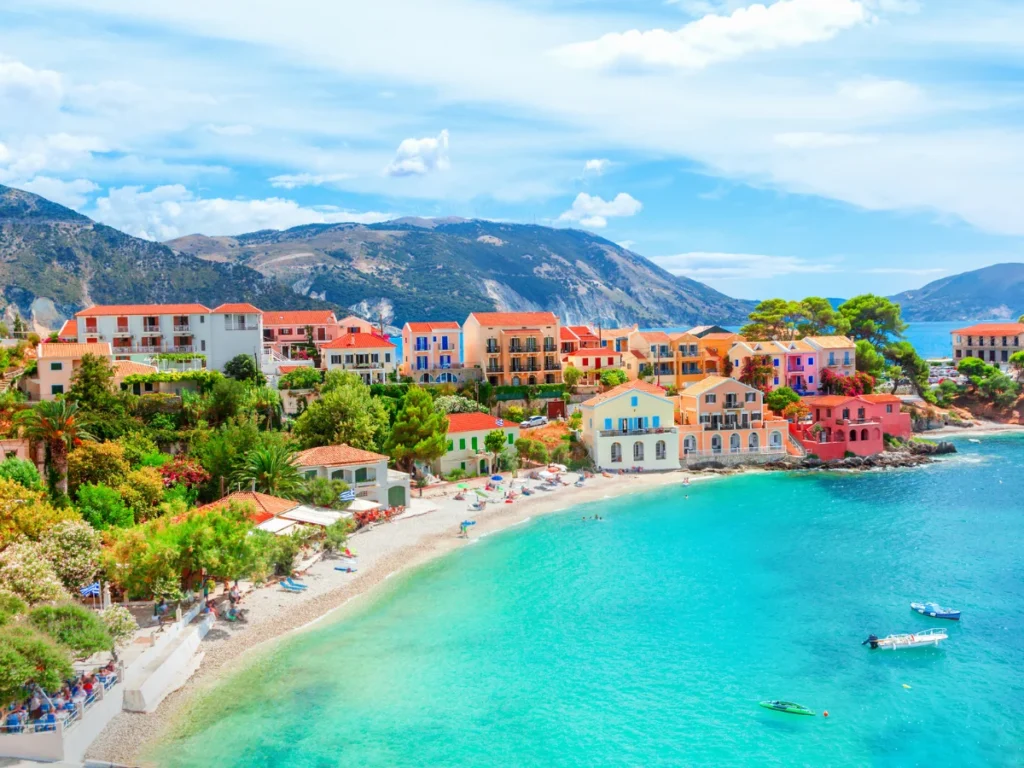
Aristoteles
Aristotle, a renowned ancient Greek philosopher and student of Plato, made profound contributions to ethics, politics, and natural sciences, laying the groundwork for Western philosophy and scientific thought.
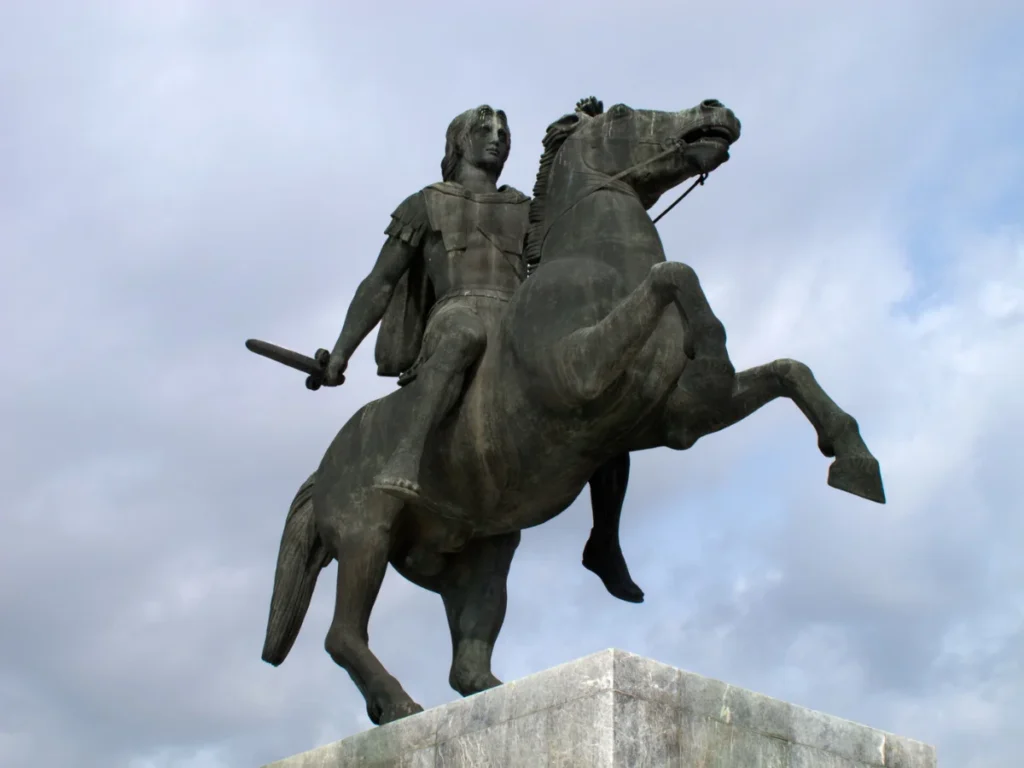
Alexander the Great
Alexander the Great, son of Philip II and queen Olympias was a remarkable military strategist and ruler of ancient Greece, left an indelible mark on history through his conquests that stretched from Greece to Egypt, Persia, and India.
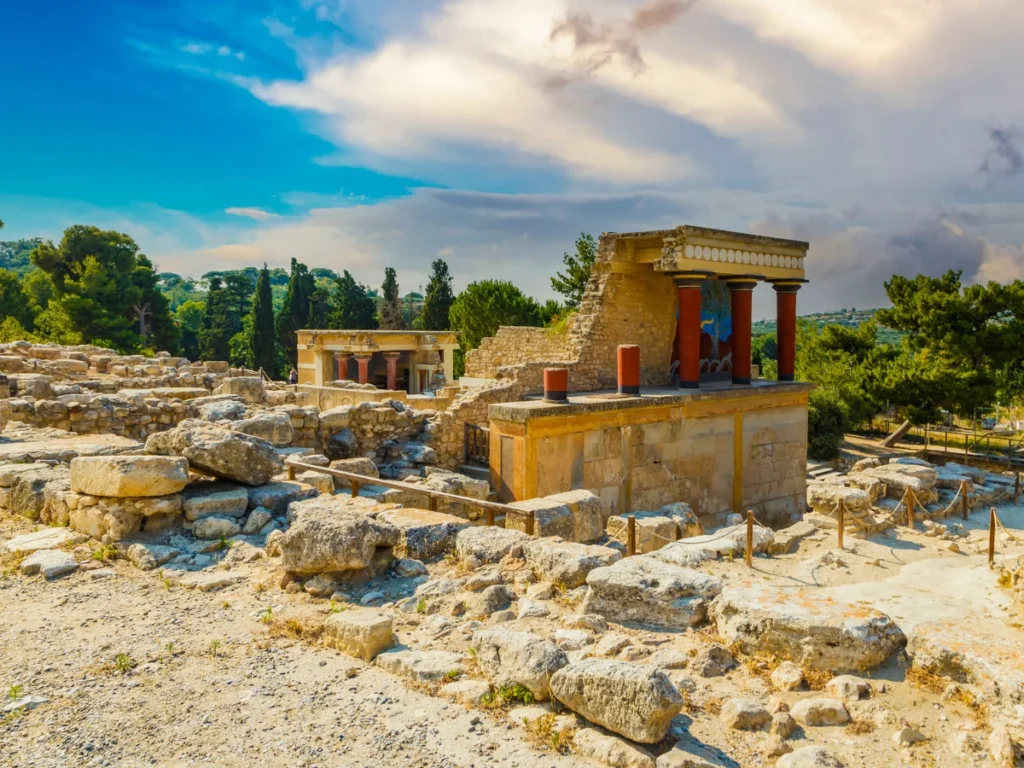
Cleopatra
Cleopatra, one of the most famous women in history, an iconic figure, was the last Pharaoh of Egypt. Her captivating beauty and political acumen shaped her era, with her love affairs notably involving Julius Caesar and Mark Antony.
